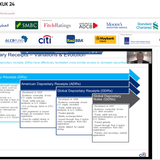To judge from reports in the press, Congress does not support either increasing taxes or cutting expenses, and indeed would like tax relief, as revealed by the discussions about phasing out payroll tax cuts, the new version of the Refis program and Funrural. Nor are lawmakers willing to cut expenses of the legislative branch. The result is that the books simply don’t balance.
Fearing the results of the 2018 elections, lawmakers in their great majority are hampering negotiations for approval of fiscal adjustment measures, such as the pension system reform. Curiously, many do not yet understand that the money is gone and they will be held accountable for the fiscal collapse and its consequences on the economy.
The gravity of the fiscal crisis is increasingly evident from the practical consequences on the functioning of the state. The dramatic experience in Rio de Janeiro, with the collapse of public services, is didactic. Without reforms, the federal government will wind up in the same boat as the RJ state government – and not in 10 years, but in the next few.
Even though society in general, naturally, does not understand technically complex themes like fiscal reforms, there is a perception that adjustments need to be made to assure the functioning of public arteries.
The lenses of Congress need to be adjusted beyond their usual near-sighted focus, which is hard to change, and even in that range it is not clear. But the fragility of the public accounts is becoming more transparent to society than many people think. A sign of this is the absence of large street mobilizations against the spending cap amendment, the labour law reform and even the pension reform. This shows the extent to which the economy is a central subject to society.
The exasperation of society with the political class, to good measure, is the result of politicians’ disconnection from economic problems. Denying the fiscal problem might be more serious than approving controversial reforms.
It’s possible that many lawmakers interpret the smooth sailing in the financial market, reflected in the stock market and exchange rate with the US dollar, as evidence that the government’s economic team and analysts are exaggerating the urgency of fiscal reforms, so they will not face any severe consequences by leaving the need to act to the next administration.
Nevertheless, it is important to recognize that the risks from stress will increase as the 2018 elections approach, given the challenges that will face the next president. The market does not accept impudence for long and can change its mood rapidly. This makes the electoral situation noisier and can reduce the chances of lawmakers’ re-election.
To keep individualist stances of lawmakers from leading to mistaken decisions by Congress, the agglutinating role of political leaders is essential, and needs to be strengthened. The transparency of the government’s communication of the gravity of the fiscal situation is an important ingredient, including to reduce the risk of misadventures in 2018.
The government should have been more transparent from the start. It should have clearly indicated the consequences of the combination of mismanagement under Dilma and the pressure on the public accounts by social security spending due to the aging population profile.
This is gradually changing. Something that wasn’t on the radar before has now been made explicit: the so-called “golden rule”. Supported by the Constitution, it forbids credit transactions from exceeding capital expenses, with certain reservations. In other words, current spending cannot be finance by issuing public debt. According to the government, the margin to honour the rule is narrowing rapidly, and failing to satisfy it can bring charges of fiscal crimes.
Nobody will accept being minister of finance or of planning in face of this kind of risk. The various budgetary restrictions need to be clear to lawmakers and society. Certainly, it will help to put the fiscal adjustment definitively in the focus of Congress.









